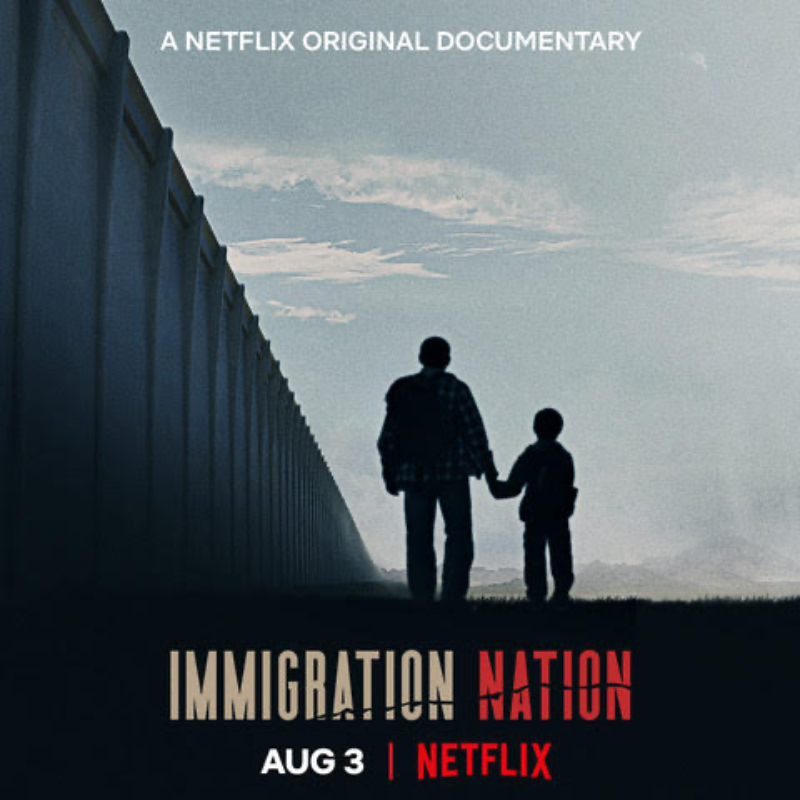Immigration Nation sheds light on United States’ ICE operations
Immigration Nation is a Netflix documentary series following Immigration and Customs Enforcement (ICE) in the United States. Filmmakers Christina Clusiau and Shaul Schwarz received permission from ICE to film inside ICE operations, tracking everything from Mexican migrant workers to ICE raids. At its heart, Immigration Nation is a story of immigrants, but it also doesn’t hesitate to share less flattering perspectives from ICE officials.
Over the course of three years, Clusiau and Schwarz journeyed with various undocumented immigrants as they navigated detention facilities, fear of deportation, and separation from their families back in their home countries.
Surprisingly, ICE spokespeople, after viewing rough cuts of the series, tried to delay its release until after the U.S. election this November — even though they had given the filmmakers access to ICE operations. In the documentary, ICE put considerable emphasis on immigrant numbers. This meant they had to arrest, detain, and deport a certain number of illegal immigrants, including immigrants without criminal records apart from their illegal status.
It was eye-opening to find that each ICE worker, from the deportation officer to the deputy field office director, avoided personal responsibility for what was happening to undocumented immigrants. In their eyes, the decisions were made by someone else, and they were each simply “doing their job.”
In an interview with Vanity Fair, Clusiau said that the American immigration system — and its refusal to accept responsibility — is by design: “[ICE is] a vast organization … They tend to always stick to the refrain of: I’m just trying to do my job. I’m enforcing our immigration laws that were passed by Congress.”
But despite these unfavourable images of ICE, Immigration Nation still managed to be released on Netflix on Aug. 3.
As far as style goes, the documentary is quite chaotic, jumping from one story to the next without completion until several episodes later. At times this can be disconcerting, but it echoes the chaotic nature of the immigration story — one filled with confusion, fear, and uncertainty.
One weakness of the documentary is its selection bias. The filmmakers presented undocumented immigrants as innocent families caught up in a flawed system, never as the criminal offenders that ICE insisted they were. Is it entirely truthful to portray all undocumented immigrants as innocent and all ICE workers as bad? Is ICE as unjust as they are portrayed, including lying about the severity of the immigrants’ crimes? While it is certainly important to share the stories of immigrants who ended up as victims of ICE, it is also important to present a diverse selection of immigrants.
However, this may not be a fair criticism because part of the filmmakers’ goal was to share stories of immigrants who did not deserve to be threatened with deportation.
Schwarz spoke to Vanity Fair about immigration and his hope that people can access legal migration into the U.S., saying, “When your [ICE’s] crackdown is on people who are trying to seek asylum, you are actually reshaping the whole system that built this country.”
As someone who is unfamiliar with U.S. immigration, I found Immigration Nation to be an informative and thought-provoking series. One documentary is not enough to explore the scope of America’s immigration crisis, but it does provide a necessary introduction to ICE and the workings within it.
More than anything, the documentary has forced me to consider what it means to be an immigrant. If I felt the need to flee my country, would I not wish to be welcomed into the land of the free? Carlos, an undocumented immigrant who was a police officer in El Salvador, remarked that the only true Americans are Indigenous people, saying, “We’re all invaders of this country. All of us.” And all of us have a responsibility to be informed and seek the truth — and, hopefully, learn to welcome immigrants with open arms.
Danaye studies English and procrastination at UFV and is very passionate about the Oxford comma. She spends her days walking to campus from the free parking zones, writing novels she'll never finish, and pretending to know how to pronounce abominable. Once she graduates, she plans to adopt a cat.


